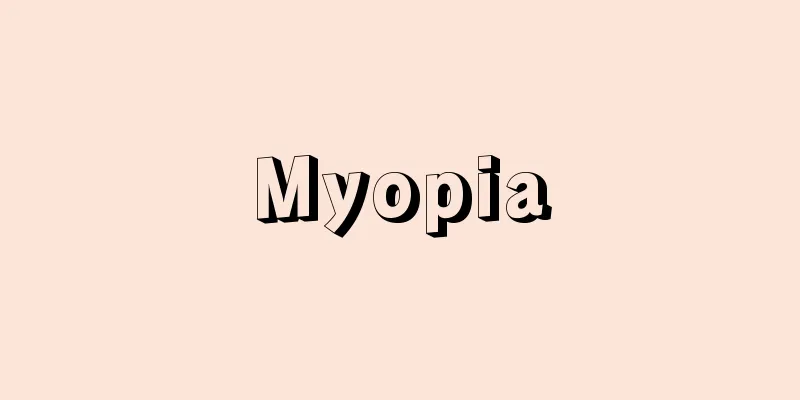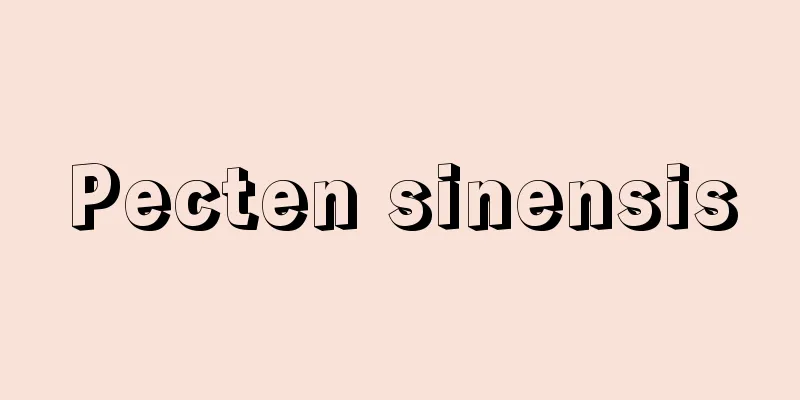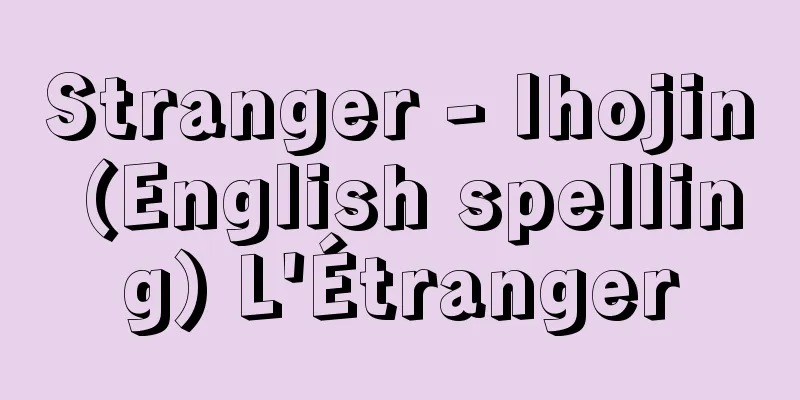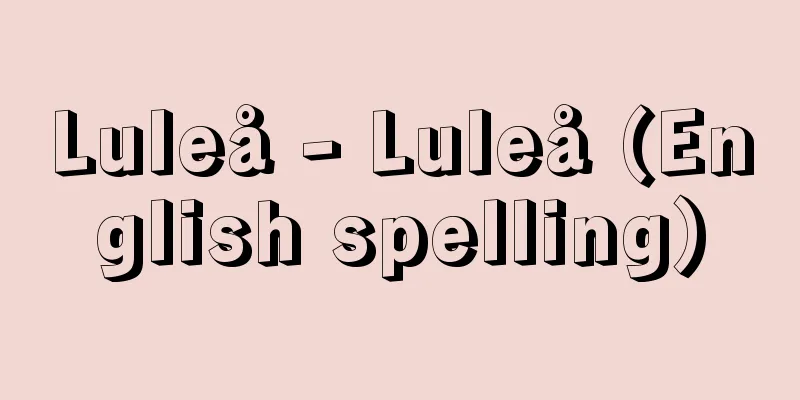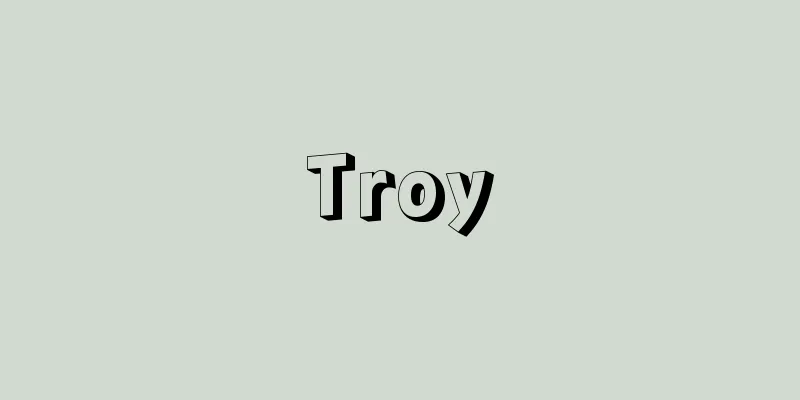Neo-liberalism (English spelling)
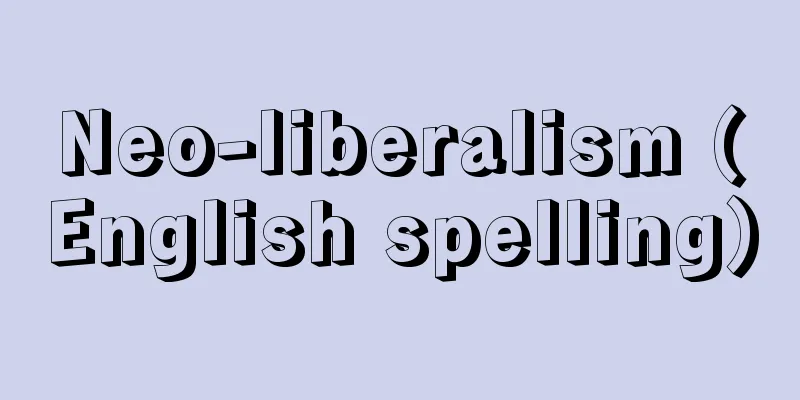
|
A trend in economic thought and policy that has been dominant worldwide since the 1980s. From the late 1960s to the 1970s, the capitalism of developed countries, which had maintained high growth since the end of World War II, was hit by a major crisis, including the dollar shock (the cessation of dollar convertibility into gold, which made the economic decline of the United States clear), the oil shock, intensifying labor movements, and inflation during low growth. At that time, neoliberalism emerged as a solution to the crisis to replace Keynesianism (in which the government actively intervenes rather than leaving the market free) as the ideological system that supported that high growth, and from the 1980s it took the place of the dominant trend as the ideology and practical knowledge of capital-led globalization. Its origins lie in economists such as Friedrich Hayek and Milton Friedman of the Chicago School. Liberalism is not a passive argument that simply rejects all restrictions on the logic of the market, as is often imagined by the so-called "laissez-faire" approach. Classical liberalism, proposed in the 18th century by David Hume, Adam Smith and others, replaced the absolute monarchy and mercantilism that had existed up until then, and was a practical wisdom that proposed a technique of governance that started from the laws of motion of an autonomous society made up of individuals who rationally pursue their own interests through the market, rather than the state. If the doctrine of state reason that supported absolute monarchy closely linked the improvement of governing capacity to the expansion of the state, liberalism encouraged a change in thinking, stating that in order to improve governing capacity, the state must itself limit the scope of its intervention. Neoliberalism, like classical liberalism, is a practical wisdom. For example, classical liberalism emerged by criticizing the "over-governance" of absolute monarchies and the expansion of the state, and touting the autonomy of civil society based on the logic of the market operated by the "hand of God." However, neoliberalism arose under the banner of deregulation, welfare cuts, austerity, and personal responsibility, arguing that the "over-governance" and expansion of the state brought about by the income redistribution policies of the Keynesian welfare state are the causes of the system's dysfunction. In this case, the characteristics of neoliberalism that distinguish it from classical liberalism are its unique conservative aspects and its thorough aspects that could be called "radical." In other words, in contrast to the former, which emerged as an enlightened force criticizing the absolute state order, neoliberalism, working hand in hand with neoconservatism, tends to promote the reorganization of a strong state through measures such as the revival of conservative moral values such as family values, strengthening public safety, curtailing minority rights, and exclusive nationalism, while at the same time having a thorough tendency to expand market logic to areas that have traditionally been considered incompatible with it, such as public education, welfare, and crime policy. While these neoliberal reforms have contributed to the economic growth of some developed countries such as the United States, they also have had negative effects such as the expansion of corporate power, the widening gap between rich and poor not only between North and South but also within each country, and a decline in the sense of solidarity among citizens due to the spread of a survival of the fittest ideology. Since the 1990s, people have been searching at various levels for an alternative form of society to neoliberalism, including the social democratic forces in Europe known as the "Third Way" and the anti-globalization movement. [Takashi Sakai] "Freedom of Choice: A Challenge to an Independent Society" by Milton Friedman and Rose Friedman, translated by Nishiyama Chiaki (1980, Nihon Keizai Shimbun)" ▽ "Free Economy and Strong States" by Andrew Gamble, translated by Ogasawara Yoshiyuki (1990, Misuzu Shobo) ▽ "The Road to Serfdom" by Friedrich Hayek, translated by Ichitani Toichiro and Ichitani Eriko (1992, Tokyo Sogensha) ▽ "Survival Strategies in a Global Market Economy" by Susan George, translated by Mori Ryoichi and Ikishima Sachiko (2000, Asahi Shimbun)" [References] | | | | |Source: Shogakukan Encyclopedia Nipponica About Encyclopedia Nipponica Information | Legend |
|
1980年代以降に世界的に支配的となった経済思想・政策の潮流。1960年代の末から70年代にかけて、ドル・ショック(アメリカの経済的衰退を明確にしたドルの金兌換中止)、オイル・ショック、激化する労働運動、そして低成長下のインフレーションなど、第二次世界大戦後、高成長を維持してきた先進国の資本主義は大きな危機にみまわれた。その際、その高成長を支える思想体系としてのケインズ主義(市場を自由放任にするのではなく、政府が積極的に介入する)にとってかわる危機の解決として現れ、80年代から資本主導のグローバリゼーションのイデオロギー、実践的な知として支配的潮流の座についたのが新自由主義である。その源流にはフリードリヒ・ハイエク、シカゴ学派のミルトン・フリードマンといった経済学者がいる。 そもそも自由主義は、いわゆる「自由放任主義」としてイメージされるような、市場の論理を制約する一切をただただ退ける消極的な議論ではない。18世紀にデビッド・ヒューム、アダム・スミスらによって提起された古典的自由主義は、それまでの絶対王政や重商主義に取ってかわり、国家ではなく、市場を介してみずからの利益を理性的に追求する諸個人からなる自律的な社会の運動法則から出発する統治の技法を提案する実践的な知でもあった。絶対王政を支えた国家理性の教義が、統治能力の向上と国家の肥大とを密接に結びつけていたとすれば、自由主義は統治能力の向上のためには国家はむしろ介入の領域をみずから制約しなければならない、と発想の転換を促したのである。 新自由主義は古典的自由主義と同じく、実践的な知である。たとえば、古典的自由主義は、絶対王政の「過剰統治」と国家の肥大化を批判し、「神の手」によって運営される市場の論理にもとづく市民社会の自律性をうたいながら登場したが、新自由主義はケインズ主義的福祉国家の所得再分配政策などがもたらす「過剰統治」と国家の肥大化こそがシステムの機能不全の原因として、規制緩和、福祉削減、緊縮財政、自己責任などを旗印に台頭した。その場合、古典的自由主義とは区別される新自由主義の特徴は、独特の保守的側面と「ラディカル」ともいえる徹底した側面にある。すなわち前者が絶対的な国家秩序を批判しつつ啓蒙主義的勢力として現れたのとは対照的に、新自由主義は新保守主義と手をたずさえながら、家族の価値のような保守的道徳観の復活、治安の強化、マイノリティの権利の削減、排他的ナショナリズムといった強い国家の再編成を促す傾向にある一方で、従来は市場の論理にはなじまないとされてきた領域――たとえば公教育、福祉、犯罪政策など――にまで、その論理を拡大する徹底した傾向をもつ。 こうした新自由主義による改革の効果は、アメリカのように一部の先進国の経済成長に資した部分もあったが、企業権力の肥大化、南北間のみならず一国内での貧富の格差の拡大、弱肉強食イデオロギーの浸透による市民の連帯意識の衰退といった負の効果ももたらし、90年代以降は「第三の道」と呼ばれるヨーロッパでの社会民主主義勢力や、アンチ・グローバリゼーションの運動など、さまざまなレベルで新自由主義にかわる社会のあり方が模索されている。 [酒井隆史] 『ミルトン・フリードマン、ローズ・フリードマン著、西山千明訳『選択の自由――自立社会への挑戦』(1980・日本経済新聞社)』▽『アンドルー・ギャンブル著、小笠原欣幸訳『自由経済と強い国家』(1990・みすず書房)』▽『フリードリヒ・ハイエク著、一谷藤一郎・一谷映理子訳『隷従への道』(1992・東京創元社)』▽『スーザン・ジョージ著、毛利良一・幾島幸子訳『グローバル市場経済生き残り戦略』(2000・朝日新聞社)』 [参照項目] | | | | |出典 小学館 日本大百科全書(ニッポニカ)日本大百科全書(ニッポニカ)について 情報 | 凡例 |
<<: Shinshu Shinmachi [town] - Shinshu Shinmachi
>>: Zoonotic diseases - zoonotic diseases
Recommend
Guareschi, G.
…the protagonist of the Don Camillo series by the...
Ejima Island - Ejima Island
A mid-Edo period ukiyo-zoshi writer. His real nam...
Haircut - Danpattsu
A bob hairstyle that was popular among both men a...
pink-headed duck
...Nine species are known, including the Ruddy-he...
Coal chemistry - sekitankagaku (English spelling) coal chemistry
Coal chemistry is an academic field that studies ...
Acharaka Nonsense - Acharaka Nonsense
...The term "acharaka play," which refe...
Myosotis
…An annual or biennial plant of the family Violac...
Dark current - andenryu (English spelling) dark current
When a voltage is applied to an electrical element...
Yonekichi Inazuka
...The patterns of painted leather changed over t...
Aitnē (English spelling) Aitne
...Most of the eruptions are strombolian eruption...
Sankaiki - Sankaiki
This is the diary of Fujiwara (Nakayama) Tadachik...
Shell Mounds of Omori
…He also directed the Education Museum (now the N...
Chang-sheng-dian (English: Chang-sheng-dian)
A full-length Chinese drama written by Hongsheng o...
Fusuma no Senji - Fusuma no Senji
In the Heian and Kamakura periods, imperial edicts...
Fernán González
?-970 Founder of the Kingdom of Castile. Became th...
